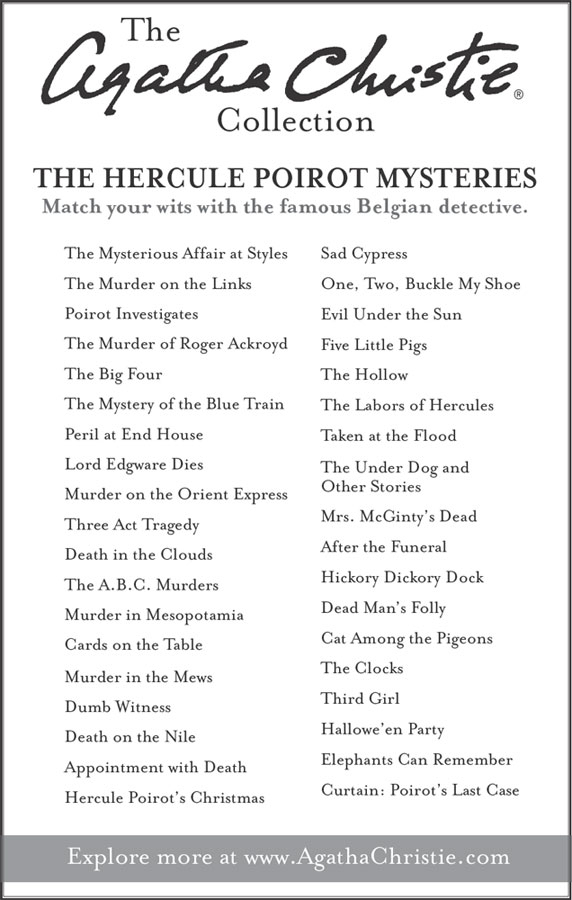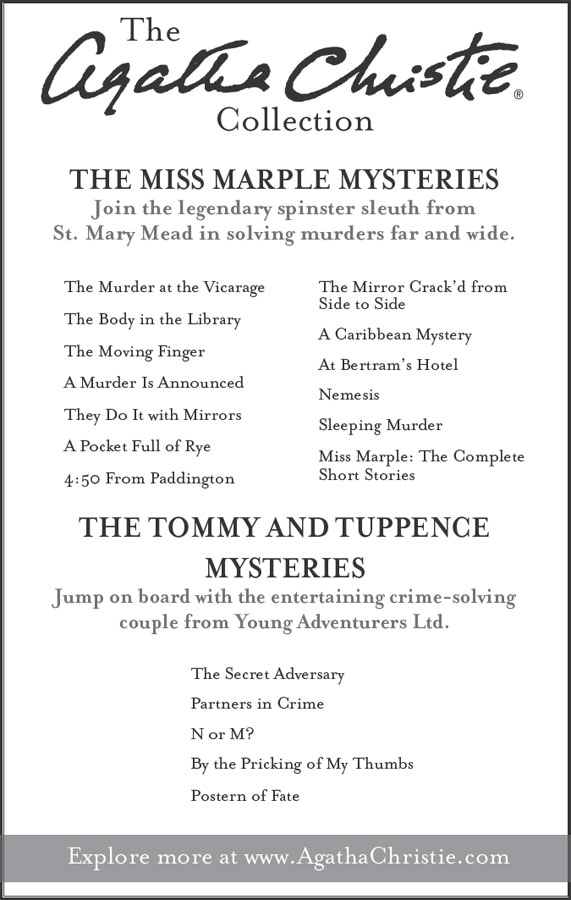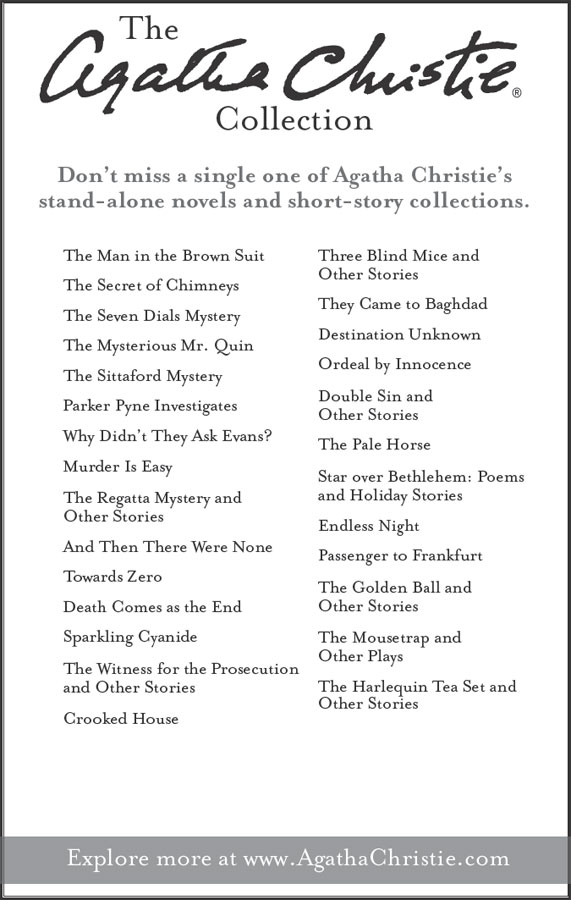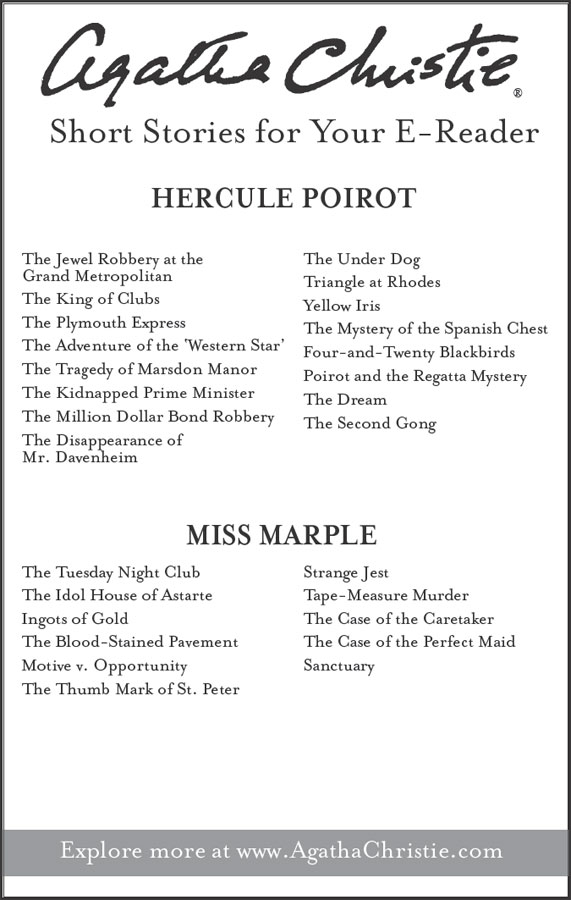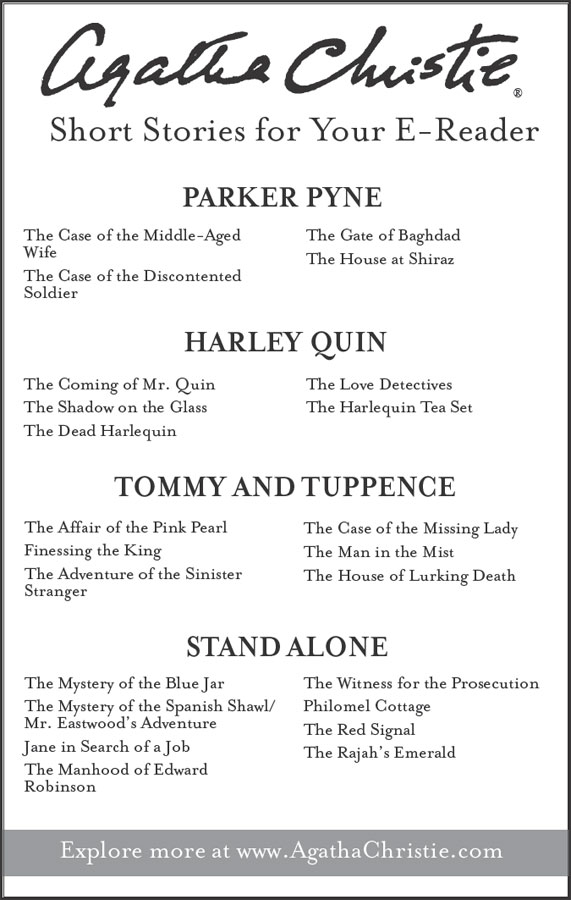The Coming of Mr. Quin (3 page)
Read The Coming of Mr. Quin Online
Authors: Agatha Christie

âFacts?'
âYes â facts.'
âWhat do you mean?' said Evesham.
âI see a clear sequence of facts, outlined by yourselves but of which you have not seen the significance. Let us go back ten years and look at what we see â untrammelled by ideas or sentiment.'
Mr Quin had risen. He looked very tall. The fire leaped fitfully behind him. He spoke in a low compelling voice.
âYou are at dinner. Derek Capel announces his engagement. You think then it was to Marjorie Dilke. You are not so sure now. He has the restlessly excited manner of a man who has successfully defied Fate â who, in your own words, has pulled off a big coup against overwhelming odds. Then comes the clanging of the bell. He goes out to get the long overdue mail. He doesn't open his letters, but you mention yourselves that
he opened the paper to glance at the news
. It is ten years ago â so we cannot know what the news was that day â a far-off earthquake, a near at hand political crisis? The only thing we do know about the contents of that paper is that it contained one small paragraph â
a paragraph stating that the Home Office had given permission to exhume
the body of Mr Appleton three days ago.'
âWhat?'
Mr Quin went on.
âDerek Capel goes up to his room, and there he sees something out of the window. Sir Richard Conway has told us that the curtain was not drawn across it and further that it gave on to the drive. What did he see? What could he have seen that forced him to take his life?'
âWhat do you mean? What did he see?'
âI think,' said Mr Quin, âthat he saw a policeman. A policeman who had come about a dog â But Derek Capel didn't know that â he just saw â a policeman.'
There was a long silence â as though it took some time to drive the inference home.
âMy God!' whispered Evesham at last. âYou can't mean that? Appleton? But he wasn't there at the time Appleton died. The old man was alone with his wife â'
âBut he may have been there a week earlier. Strychnine is not very soluble unless it is in the form of hydrochloride. The greater part of it, put into the port, would be taken in the last glass, perhaps a week after he left.'
Portal sprung forward. His voice was hoarse, his eyes bloodshot.
âWhy did she break the decanter?' he cried. âWhy did she break the decanter? Tell me that!'
For the first time that evening, Mr Quin addressed himself to Mr Satterthwaite.
âYou have a wide experience of life, Mr Satterthwaite. Perhaps you can tell us that.'
Mr Satterthwaite's voice trembled a little. His cue had come at last. He was to speak some of the most important lines in the play. He was an actor now â not a looker-on.
âAs I see it,' he murmured modestly, âshe â cared for Derek Capel. She was, I think, a good woman â and she had sent him away. When her husband â died, she suspected the truth. And so, to save the man she loved, she tried to destroy the evidence against him. Later, I think, he persuaded her that her suspicions were unfounded, and she consented to marry him. But even then, she hung back â women, I fancy, have a lot of instinct.'
Mr Sattherthwaite had spoken his part.
Suddenly a long trembling sigh filled the air.
âMy God!' cried Evesham, starting, âwhat was that?'
Mr Satterthwaite could have told him that it was Eleanor Portal in the gallery above, but he was too artistic to spoil a good effect.
Mr Quin was smiling.
âMy car will be ready by now. Thank you for your hospitality, Mr Evesham. I have, I hope, done something for my friend.'
They stared at him in blank amazement.
âThat aspect of the matter has not struck you? He loved this woman, you know. Loved her enough to commit murder for her sake. When retribution overtook him, as he mistakenly thought, he took his own life. But unwittingly, he left her to face the music.'
âShe was acquitted,' muttered Evesham.
âBecause the case against her could not be proved. I fancy â it may be only a fancy â that she is still â facing the music.'
Portal had sunk into a chair, his face buried in his hands.
Quin turned to Satterthwaite.
âGoodbye, Mr Satterthwaite. You are interested in the drama, are you not?'
Mr Satterthwaite nodded â surprised.
âI must recommend the Harlequinade to your attention. It is dying out nowadays â but it repays attention, I assure you. Its symbolism is a little difficult to follow â but the immortals are always immortal, you know. I wish you all goodnight.'
They saw him stride out into the dark. As before, the coloured glass gave the effect of motley â¦
Mr Satterthwaite went upstairs. He went to draw down his window, for the air was cold. The figure of Mr Quin moved down the drive, and from a side door came a woman's figure, running. For a moment they spoke together, then she retraced her steps to the house. She passed just below the window, and Mr Satterthwaite was struck anew by the vitality of her face. She moved now like a woman in a happy dream.
âEleanor!'
Alex Portal had joined her.
âEleanor, forgive me â forgive me â You told me the truth, but God forgive me â I did not quite believe â¦'
Mr Satterthwaite was intensely interested in other people's affairs, but he was also a gentleman. It was borne in upon him that he must shut the window. He did so.
But he shut it very slowly.
He heard her voice, exquisite and indescribable.
âI know â I know. You have been in hell. So was I once. Loving â yet alternately believing and suspecting â thrusting aside one's doubts and having them spring up again with leering faces ⦠I know, Alex, I know ⦠But there is a worse hell than that, the hell I have lived in with you. I have seen your doubt â your fear of me ⦠poisoning all our love. That man â that chance passer by, saved me. I could bear it no longer, you understand. Tonight â tonight I was going to kill myself ⦠Alex ⦠Alex â¦'
Agatha Christie is the most widely published author of all time and in any language, outsold only by the Bible and Shakespeare. Her books have sold more than a billion copies in English and another billion in a hundred foreign languages. She is the author of eighty crime novels and short-story collections, nineteen plays, two memoirs, and six novels written under the name Mary Westmacott.
She first tried her hand at detective fiction while working in a hospital dispensary during World War I, creating the now legendary Hercule Poirot with her debut novel
The Mysterious Affair at Styles
. With
The Murder in the Vicarage
, published in 1930, she introduced another beloved sleuth, Miss Jane Marple. Additional series characters include the husband-and-wife crime-fighting team of Tommy and Tuppence Beresford, private investigator Parker Pyne, and Scotland Yard detectives Superintendent Battle and Inspector Japp.
Many of Christie's novels and short stories were adapted into plays, films, and television series.
The Mousetrap
, her most famous play of all, opened in 1952 and is the longest-running play in history. Among her best-known film adaptations are
Murder on the Orient Express
(1974) and
Death on the Nile
(1978), with Albert Finney and Peter Ustinov playing Hercule Poirot, respectively. On the small screen Poirot has been most memorably portrayed by David Suchet, and Miss Marple by Joan Hickson and subsequently Geraldine McEwan and Julia McKenzie.
Christie was first married to Archibald Christie and then to archaeologist Sir Max Mallowan, whom she accompanied on expeditions to countries that would also serve as the settings for many of her novels. In 1971 she achieved one of Britain's highest honors when she was made a Dame of the British Empire. She died in 1976 at the age of eighty-five. Her one hundred and twentieth anniversary was celebrated around the world in 2010.
Â
Â
Visit
www.AuthorTracker.com
for exclusive information on your favorite HarperCollins authors.
